Visit to get our entire library of TED Talks, transcripts, translations, personalized talk recommendations and more.
We live in a call-out culture, says activist and scholar Loretta J. Ross. You’re probably familiar with it: the public shaming and blaming, on social media and in real life, of people who may have done wrong and are being held accountable. In this bold, actionable talk, Ross gives us a toolkit for starting productive conversations instead of fights — what she calls a “call-in culture” — and shares strategies that help challenge wrongdoing while still creating space for growth, forgiveness and maybe even an unexpected friend. “Fighting hate should be fun,” Ross says. “It’s being a hater that sucks.”
The TED Talks channel features the best talks and performances from the TED Conference, where the world’s leading thinkers and doers give the talk of their lives in 18 minutes (or less). Look for talks on Technology, Entertainment and Design — plus science, business, global issues, the arts and more. You’re welcome to link to or embed these videos, forward them to others and share these ideas with people you know.
Become a TED Member:
Follow TED on Twitter:
Like TED on Facebook:
Subscribe to our channel:
TED’s videos may be used for non-commercial purposes under a Creative Commons License, Attribution–Non Commercial–No Derivatives (or the CC BY – NC – ND 4.0 International) and in accordance with our TED Talks Usage Policy (). For more information on using TED for commercial purposes (e.g. employee learning, in a film or online course), please submit a Media Request at
First of all, thank y’all
for listening to me.
I come to y’all because most Black women
don’t go to Klu Klux Klan rallies
on purpose.
(Laughter)
I did because it was my job;
I monitored hate groups.
But I really wanted to find out
how people could hate strangers so much.
Mostly, I wanted to work
for peace and justice.
But fortunately for me,
my mentor at the time was the legendary
civil rights leader Reverend C.T. Vivian,
who’d been an aide
to Dr. Martin Luther King.
And C.T. used to say,
“When you ask people to give up hate,
then you need to be there
for them when they do.”
Now, at the time C.T. said those words,
I started muttering under my breath,
because you can’t curse out
a preacher, you know?
But his words didn’t make any sense to me,
because if the Klan hated Black folks,
I was all right with hating them back.
Sounded OK to me.
But then something happened.
It became my job to help people
who were leaving hate groups,
and then once I got to know them,
I couldn’t hate them anymore.
And then I got confused.
I’m a survivor of racial violence,
rape and incest,
and I needed to find another
moral compass for my life’s work.
And that compass had to shift
from hate to love.
And so that improbable journey
is why I’m here to talk to y’all today.
You know, because I really, really
want to build a culture
and a world
that invites people in
instead of pushing them out.
It’s called a “calling-in culture.”
Now, some people really do believe
that the only way to do human rights work
is the way they want —
you know, my way or the highway.
But the problem is, when many different
people think many different thoughts
and they move in the same direction,
that’s a movement.
But when many different people
think one thought,
and they move in the same direction,
that’s a cult.
(Laughter)
And when you treat
potential allies like enemies,
you’re behaving like a cult,
not the human rights movement.
My friend Dázon Dixon Diallo,
who’s a very smart woman,
says that she believes that calling in
will be to this digital age human rights
movement of the 21st century
what nonviolence was to the civil rights
movement in the 20th century:
a new way to understand
how to truly achieve justice.
It’s not a matter of what we do,
but how we do it.
Now, all of us know what calling out is —
our “cancel culture,” as it’s called —
you think somebody
has done something wrong,
you think they should be
held accountable for it,
and you think they should
be punished for it.
So one of those calling-out examples
is, “I can’t believe you just said that.
You’re racist, sexist,
toxic, manipulative.”
With this approach,
you’ve guaranteed one thing:
with this blaming and shaming,
you just invited them to a fight,
not a conversation,
because you’re publicly humiliating them.
Now, some people actually
think call-outs should be used
to hold powerful people accountable,
and there’s a lot to that.
I mean, that’s what the human rights
movement has always done.
But most people are calling
others out out of fear.
Or they’re feeling that they
need to belong to something.
And some people think that they’ll feel
better about themselves
if they put somebody else down.
And then there’s too many
people, in my opinion,
who think that they can become famous
by defaming somebody else.
Most of us want all of this
violence to stop,
but we don’t know where to begin.
And most of us stay silent
because we’re afraid
that we’ll become the next target.
So even if something feels unfair,
we’re silent.
And if you’re unlucky enough
to have something that you regretted
captured on cell phone or in a tweet,
you’re walking around
with an unexploded gotcha bomb
just waiting to blow up
your life or your career
or your reputation.
I guess I need to ask:
How many of us here
have done something in our past
that could come back to haunt us?
One of my students once said,
“A call-out is not
an invitation for growth.
It’s the expectation
that you’ve already grown.”
This is the culture we’re trapped in now.
On the other hand,
there is calling in.
“Calling in” is a phrase
invented by Loan Tran,
and basically, a call-in
is a call-out done with love.
So when you think somebody
has done something wrong
and you want to hold them accountable,
you don’t react with anger or hate.
You just remain calm
and look at them and say —
and you can do this online
and in person, too —
but you just look at them calmly,
and you tell them,
“That’s an interesting viewpoint.
Tell me more.”
With that, you’ve invited them
into a conversation
instead of a fight.
And you don’t have to agree with somebody
to offer them loving attention.
All you’re admitting at that moment
is that there’s a possibility
that they’re as complicated as you are.
And everybody deserves to be heard
and to be respected.
And if you use this call-in practice
like I’m teaching,
what you’ll do is several things.
First of all, you’ll lead
with love instead of anger
and allow somebody else to grow.
Secondly, it’ll affirm
your own inner empathy
and your compassion,
and you’ll feel so good about yourself
when you learn that you can grow, too,
in embracing and inviting
more people into the world.
And then the third thing is that you can
call in your friends, your families,
your neighbors, your coworkers,
all the people you might have
given up on in the past
because of how they’ve hurt you.
Now, if you’re going to embrace
this calling-in practice,
you need some preparation.
It begins with self-assessment.
First of all, you need
to know your motives.
Why are you choosing to call
somebody in or out?
Are you in a healed enough space
for somebody else’s feelings?
If you’re not, maybe you’re not ready
to do the calling in yet.
But still, you have those options.
And I’ve taught these tactics
to eighth-graders, to college students,
to C-suite executives.
And as I said, they all
feel better about themselves
for reaffirming their optimism
and their hope that they can make
a difference in the world.
This is so, so important.
And so, if you’re not really ready
to invest in somebody else’s growth
with a call-in,
or you don’t want the inevitable fight
if you call them out,
there actually is a third option.
You can call on them
to be a better person.
And this was a phrase created
by Sonya Renee Taylor.
My favorite calling-on response
is to look the person dead in the eye,
cock my head to the side,
like I really care,
and say, “I beg your pardon.”
And then I wait.
Many times, they’ll start
walking back their words
just because I’m looking at them
like they lost their minds.
(Laughter)
We can use this calling-in, calling-out,
calling-on approach
as part of the spectrum of responses
we can make to each other,
and that’s so, so important.
One time — let me put it this way —
one time, I misgendered
a student in my class.
And I froze in shame because I expected
the student to jump down my throat,
because misgendering somebody
is a really big deal nowadays.
And instead, this student looked at me
and offered me grace by saying,
“Oh, that’s all right, professor.
I misgender myself sometimes.”
(Laughter)
An 18-year-old. Showing me grace.
Now, I believe that one of the most
effective expressions of calling-in
is forgiveness.
And the most powerful example
of radical forgiveness I’ve ever seen
happened after the 2015 church massacre
in Charleston, South Carolina,
where nine people were killed.
And one of the victim’s sons,
Chris Singleton,
offered his mother’s killer — I mean,
his mother’s killer — forgiveness.
And I can’t get his words exactly right,
but Chris basically said,
“Forgiveness is more powerful
than people realize,
because it lifts all of this
stuff off of you.
It’s freedom — freedom from revenge,
freedom from anger,
freedom from hatred.”
Sadly, he was called out for saying that.
I believe that it’s very possible
to use these strategies,
so I’m going to tell you
about my Uncle Frank.
He ain’t really my uncle but, you know,
he’s still living so I can’t call him out.
Anyway.
He came to a family reunion
and decided to talk about
Mexican Americans stealing jobs.
And everybody had been
chatting and eating quite happily
till his racism silenced the room.
Most people buried their faces
in their plate,
because this was Uncle Frank.
This is what he does.
But I decided to respond,
but not with anger.
I kind of organized a few comments
and asked him a question.
“Uncle Frank, I know you.
I love you.
I respect you.
And what I know about you
is that you’d run into a burning building
and save somebody if you could.
And you wouldn’t care
what race that person is,
you wouldn’t care whether
they were gay or an immigrant.
So, Uncle Frank, that’s the man
I love and respect.
So tell me: How can I reconcile
that good Uncle Frank that I know you are
with the words that just
came out of your mouth?”
You haven’t called him in.
You haven’t called him out.
You called on him to decide
how he’s going to be.
And with this approach,
he’s less likely to become defensive,
because you haven’t actually attacked him.
And while he’s organizing what to say,
you’ve affirmed that he has options
about how he wants to be,
especially in his niece’s eyes
and his family’s eyes.
But most importantly,
the third thing you’ve achieved
is that you did not let
his bigotry go unchallenged,
and that was witnessed
by the entire family:
how you stand up to bigotry
at a family reunion
without hate, argument
and throwing over the table.
Now, anybody can learn
these tactics, as I’ve said,
and we really need to understand
that we can offer people forgiveness
and a chance to redeem themselves
from their mistakes.
Somebody gave us a chance to grow,
and we can offer that to others.
So I invite you to join me
in this calling-in culture,
this calling-in world that we’re building.
I think you will have
a lot of joy and satisfaction in it,
like I’ve found.
We don’t actually risk anything,
because all we risk losing is our pain.
And then you’ll learn
the most powerful lesson I’ve learned
from five decades of being
a social justice activist:
fighting hate should be fun.
(Laughter)
It’s being a hater that sucks.
Thank y’all.
(Applause and cheers)

 Science & Technology4 years ago
Science & Technology4 years ago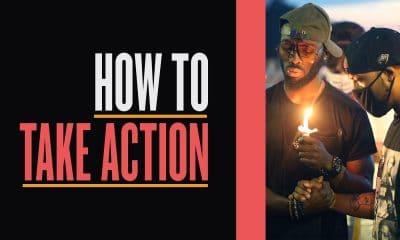
 CNET4 years ago
CNET4 years ago
 Wired6 years ago
Wired6 years ago
 People & Blogs3 years ago
People & Blogs3 years ago
 Wired6 years ago
Wired6 years ago
 Wired6 years ago
Wired6 years ago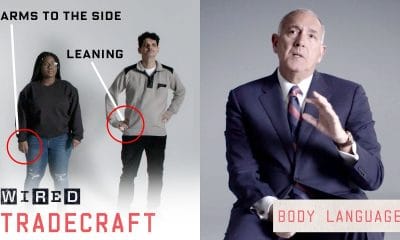
 Wired6 years ago
Wired6 years ago
 CNET5 years ago
CNET5 years ago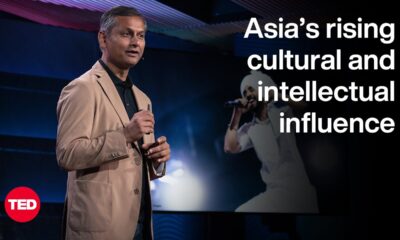

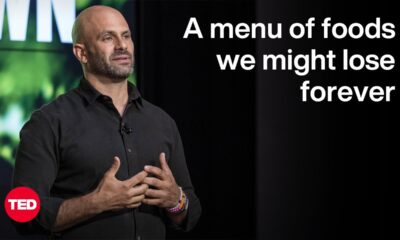

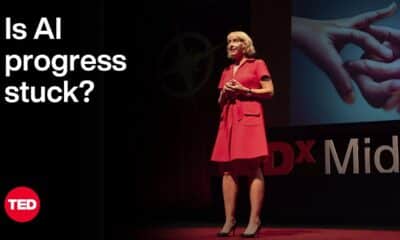

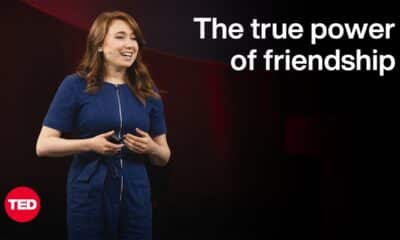

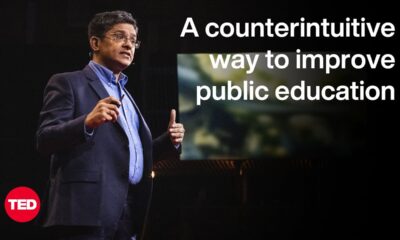

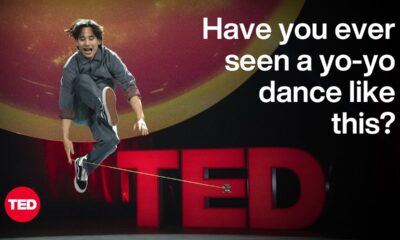

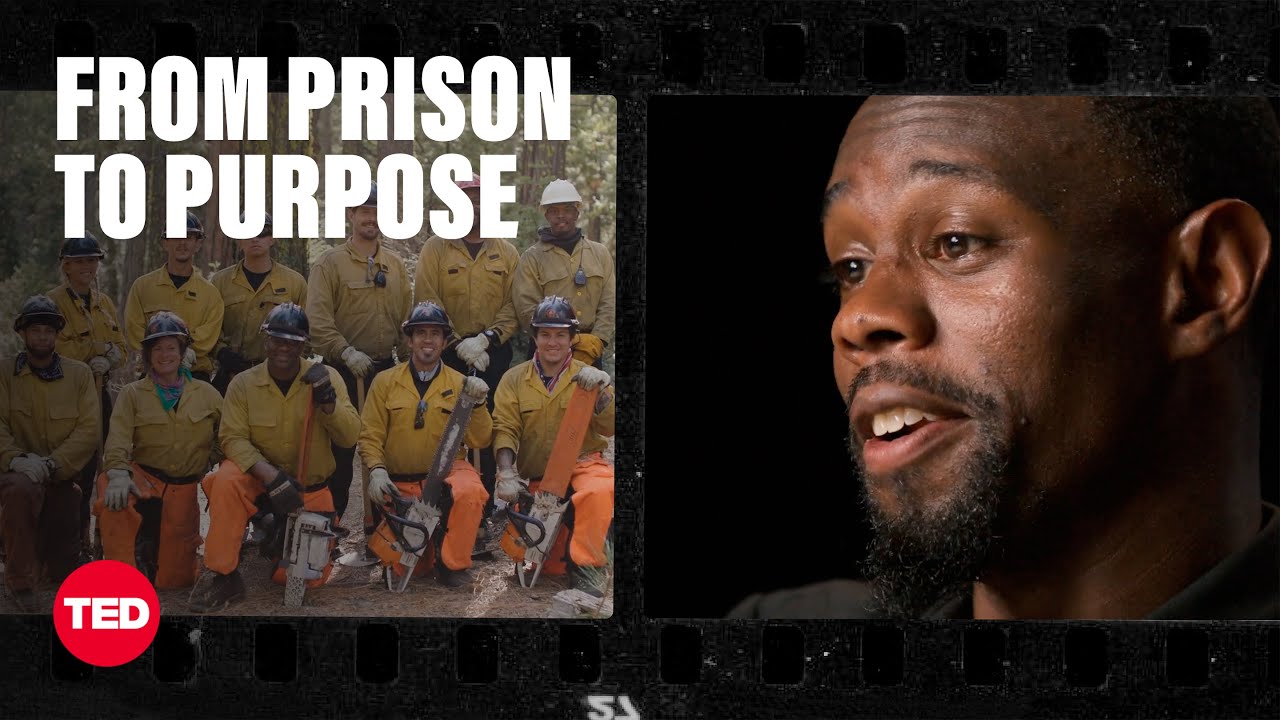
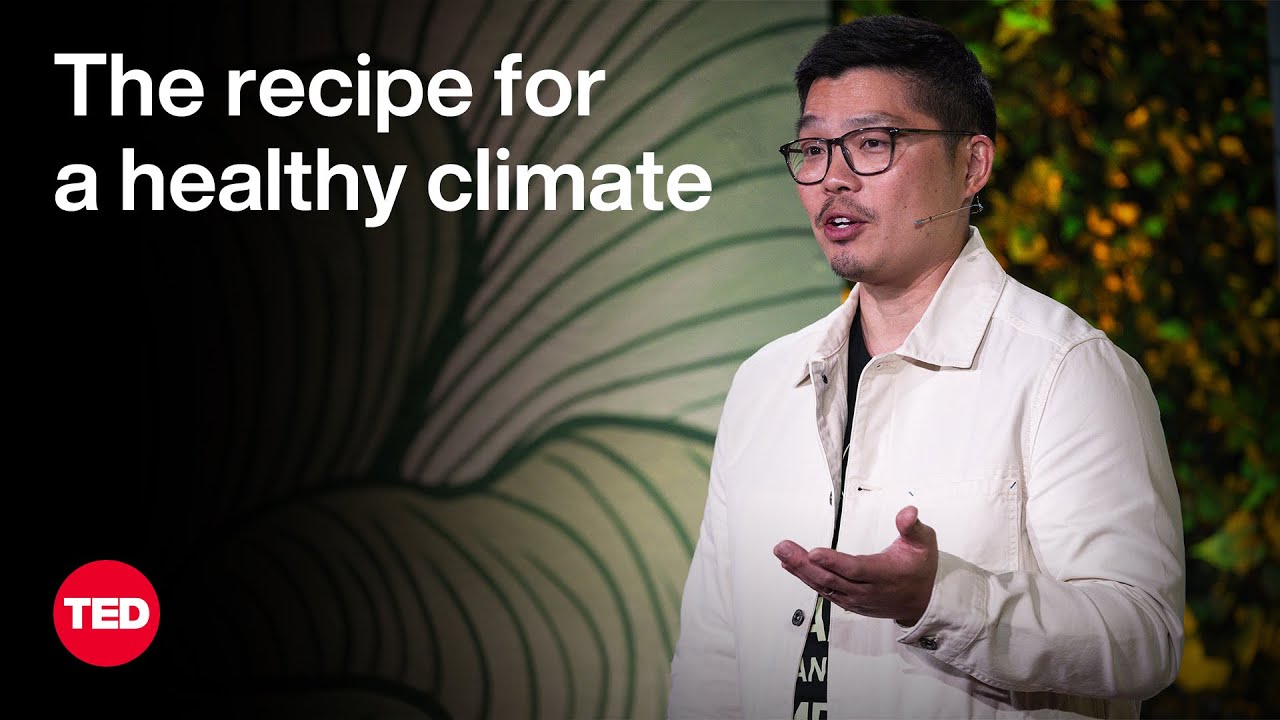
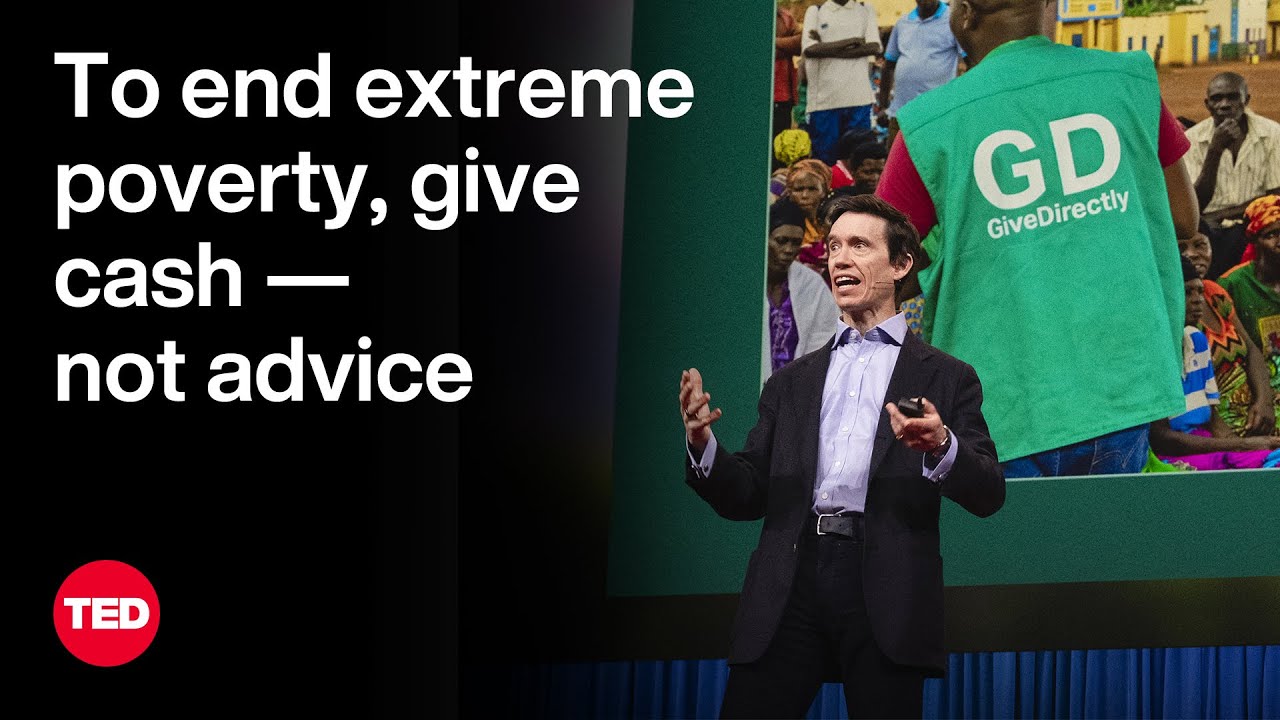




Angry Chileh
August 4, 2021 at 3:35 pm
***BLM has left the chat ***
CMDR After Hours
August 4, 2021 at 3:42 pm
Propaganda. She found all 4 members of the government ran psyop known as kkk.
Mike Maloney
August 4, 2021 at 3:42 pm
Just…dont call
Demasiadamente Studios
August 4, 2021 at 3:42 pm
We need more of this kind of voices. A call for love and understanding. God bless her.
CallMeFil
August 4, 2021 at 3:44 pm
Wow
Donna Haynes
August 4, 2021 at 3:53 pm
Thank you for this wisdom, Ms. Ross. Thank you even more for offering examples of what to do and how to do it. So many TED talks say “this is wrong” or “we should stop this” without giving ways to change or examples of what to do instead. Your talk was one of the most helpful I have heard thanks to your approach to teaching.
Nicole on EQ
August 4, 2021 at 4:03 pm
Our would could do better with a little more kindness ❤️🌎
True Crime Queen TV
August 4, 2021 at 4:21 pm
Love this content ❤️❤️❤️ Stay safe everyone
Neightrix Prime
August 4, 2021 at 4:29 pm
People who’ve chosen to believe lies must be called out. We’re not getting closer by pretending half the population isn’t propagandized to hate others. Growth doesn’t happen in comfort, it happens in conflict – and people need to be *VERY* uncomfortable.
Michael Patrick
August 4, 2021 at 6:20 pm
I disagree with your statement. It is absolutely possible to educate someone w/o conflict.
mixer_p
August 4, 2021 at 4:29 pm
A TED talk so good, I watched it more than once. THIS is the kind of idea we need for humanity to progress.
Michael Patrick
August 4, 2021 at 6:16 pm
I agree!
Manu John
August 4, 2021 at 4:38 pm
No wonder she put a lot of food in 😜😜🤣🤣
Oshungurl
August 4, 2021 at 4:39 pm
Giving someone the opportunity to choose their better self is the grace we all want, too.
Hannah Thufvesson
August 4, 2021 at 5:02 pm
Loretta J. Ross, thank you! You have no idea how much your words meant to me – today, and all days.
Fine Artist Kelli Jean Stretesky
August 4, 2021 at 5:07 pm
Great video! Exercising healthier communication skills goes a long ways.
SimSim
August 4, 2021 at 5:36 pm
Probably the best thing to do is to use them approprietly in the situation. Sometimes calling people out is the best way to get people to do what you want them to. The only thing you need to realize is that while you use anger when calling someone out, this anger should just be a means and not something that governs your future responses.
Michael Patrick
August 4, 2021 at 6:15 pm
I agree with this message 100%. I never understand looting, and violence as a form of protest. We as humans are all flawed in one way or another, there should be no need for hate based on religion, race, sexuality, culture, or gender. Just live your life as well as you can and let others do the same. If someone does or says something that offends you, address the situation. As she says educate do not hate.
Paul
August 4, 2021 at 6:20 pm
What a wonderful way to be. To change hate to love. Thank you 🙏🏻
swyx
August 4, 2021 at 7:15 pm
I love that in her example “calling on” her uncle to be a better person, she emphasized that she still stood up to the racism. Leading by example while still giving him room to rise to the occasion.
JVP
August 4, 2021 at 7:16 pm
“…I really wanted to find out how people could hate strangers so much…”
“When many different people think many different thoughts and they move in the same direction, that’s a movement. When many different people think one thought and they move in the same direction, that’s a cult and when you treat potential allies like enemies, you’re behaving like a cult, not the human rights movement.”
Dot's Channel
August 4, 2021 at 7:50 pm
I get it, but also I don’t owe haters niceties. Tried it for years, doesn’t work with everyone. It’s more about what words you use and how you word it rather than “we need to give them love”. That might work for this organized group, as an individual I need to keep my vulnerabilities away from those who’d kill me for who I am.
Analise Casals
August 4, 2021 at 9:04 pm
This woman comes in the name of chaos and she’s trying to hide it by saying she cares for racist people.
All she wants you to do is allow the darkness to enter through the love of your heart.
Guard yourself children. shine your light with truth and honesty. If you allow anything else in, it will consume whatever light you have.
Lisa Love Ministries
August 4, 2021 at 11:00 pm
2 Corinthians 10:5
“We tear down arguments and every presumption set up against the knowledge of God; and we take captive every thought to make it obedient to Christ”
MUD
August 5, 2021 at 1:10 am
Folks are so concerned with social approval they don’t dare show compassion to those who believe differently than they do for fear of being labeled “one of them”.
agypsyrover
August 5, 2021 at 1:18 am
Beautiful. Thank you 🙏🏻
Josh Evenson
August 5, 2021 at 2:40 am
I’m game
Laura Delhauer
August 5, 2021 at 2:52 am
Incredible. Love this. Reminds me of Deeyah Khan’s work. So necessary for these ideas to spread.
Sean Ferguson
August 5, 2021 at 3:18 am
God bless you, Sister Ross!
Morticia147
August 5, 2021 at 7:11 am
A really great talk – what a message and how wonderful to hear something like that in such crazy times.
Martijn Mol
August 5, 2021 at 8:28 am
I love the last example she gave about her Uncle Frank. Thank your for your wisdom.
credenza1
August 5, 2021 at 8:56 am
Imagine the arrogance of assuming that you are in any way qualified to judge that another person needs to be “called out” – or in. How about people mind their own business and stop passing judgement?
YT Throwaway
August 5, 2021 at 9:18 am
***violent dealer beating a local to death with claw hammer***
“that’s an interesting viewpoint”
nickalingus
August 5, 2021 at 10:37 am
It was a pleasure assisting you at the hotel. I’m the bellman that had a conversation with you about smoking and the tragedy that you sadly experienced in life…you were very pleasant and I love your tedtalk! You are truly a woman of spirit! God bless you!!
Anna Mae Gold
August 5, 2021 at 11:18 am
🔥😻🙏🏽
JVP
August 5, 2021 at 2:11 pm
“…you don’t have to agree with somebody to offer them loving attention. All you’re admitting at that moment is there’s a possibility they’re as complicated as you are and everybody deserves to be heard and respected…”
Danae C
August 5, 2021 at 3:33 pm
I absolutely adore this message💞
D Chamberlain
August 5, 2021 at 3:33 pm
I absolutely adore this message💞
Rebecca Catherine
August 5, 2021 at 3:54 pm
I love this so much🌈💖👑
Matityahu
August 5, 2021 at 3:55 pm
Remember, don’t call rapists out……Call them in.
Ashley Aurora
August 5, 2021 at 5:19 pm
🥰
Richard Handerson
August 10, 2021 at 11:50 pm
Hello Ashley how are you doing hope you’re doing okay ✅
Visualbree
August 5, 2021 at 7:02 pm
This must be shared. @Dababy
FactuAl_baNana4
August 5, 2021 at 11:26 pm
“Fighting hate should be fun.”
Dovid Rabinowitz
August 6, 2021 at 12:59 am
This is the kind of activism the world needs ❤️❤️
Shadin Ahmed
August 6, 2021 at 9:40 am
Wow ☺️☺️
Cecilia Prime
August 6, 2021 at 2:30 pm
This is so beautifully done! This applies to so much when hate can be so prevalent. Thank you!!! 💕
Cecilia Spears
August 6, 2021 at 2:30 pm
This is so beautifully done! This applies to so much when hate can be so prevalent. Thank you!!! 💕
Dana Stoops
August 6, 2021 at 3:32 pm
Yes!
Lori Quinn
August 6, 2021 at 10:42 pm
I love this, thank you for sharing your strength
Mr emf
August 7, 2021 at 2:07 am
This is so impressive! I’m glad I finally found the answer to the call out culture after wondering for so long. This video deserves more views.
Daniel J. De Jesús
August 7, 2021 at 10:07 pm
Amazing talk. More of this in our universities and our homes, please.
Charlotte Grootenboer
August 7, 2021 at 11:46 pm
💜
Richard Handerson
August 10, 2021 at 11:49 pm
Hello Charlotte how are you doing hope you’re doing okay ✅
Christelle Vinot
August 8, 2021 at 1:33 pm
Bless this woman. I love the call in culture. 🙏
Richard Handerson
August 10, 2021 at 11:46 pm
Hello Christella how are you doing hope you’re doing okay ✅
Anna J.
August 8, 2021 at 3:05 pm
🌹💓🤗🌺
Richard Handerson
August 10, 2021 at 11:49 pm
Hello Anna how are you doing hope you’re doing okay ✅
Shamsiya Basiru
August 8, 2021 at 11:13 pm
Been cured from herpes virus is the greatest thing that has ever happened to me and I thank God for using Dr. IGUDIA on YouTube to cure me from this virus with his herbal medication.
Prince Ea
August 9, 2021 at 7:09 am
Love this so much ❤️❤️. One of the most powerful TED talks I’ve ever seen
HereNow
August 10, 2021 at 1:04 am
You will love her New York Times editorial on calling in!
HereNow
August 10, 2021 at 1:06 am
Everyone, I highly recommend her New York Times editorials on calling in. They are so inspiring and remind folks not to fight amongst those who actually have similar beliefs but aren’t ‘purists’
Arausi Quintero
August 10, 2021 at 7:42 pm
Beautiful!